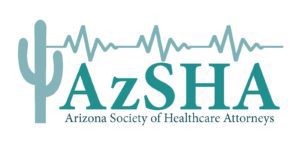DECEMBER 7, 2021 PROGRAM ANNOUNCEMENT
Surprise Medical Billing & Price Transparency
Time: 12:00 noon to 1:00 pm
Place: Cisco WebEx
Surprise billing occurs when a patient receives an unexpected bill from a health care provider or facility because the patient did realize that the provider or facility was not an “in-network” provider under their health plan.
In December 2020, Congress adopted the Consolidated Appropriations Act, 2021 (“the “CCA”), which includes a special rule-the “No Surprises Act”. The Act is designed to protect consumers from “surprise” medical bills for services beginning January 1, 2022. To implement the law, on July 1, 2021, the Office of Personnel Management, Department of Treasury, Department of Health and Human Services, the Department of Labor issued the interim final rule “Requirements Related to Surprise Billing: Part I “and on September 30, 2021, the agencies issues another interim final rule- “Requirements Related to Surprise Billing: Part II. The comment period for Part II expires on November 29, 2021.
The interim final rule includes requirements applicable to group health plans and health insurance issuers; certain types of health care providers and health benefits plans offered under the Federal Employees Health Benefits Act. Under the Act, nonparticipating providers, facilities and air ambulance providers are prohibited from balance billing patients for medical bills from emergency services, non-emergency services performed by nonparticipating providers at participating health care facilities and for air ambulance services.
Price transparency requires disclosure of price data. Hospital and provider charges often vary significantly depending upon location, plan contract and cash pay. We will provide an overview of Price Transparency and the Act and its implementing regulations, with the impact on plans, providers, and consumers along with how the rule impacts Arizona’s 2017 Surprise Out-of-Network balance billing law.
Lindsay Knutson is an Associate Director with BRG’s Health Analytics practice. Lindsay leads teams in complex data analytics and compliance audits to help healthcare companies and their legal counsel resolve business challenges and disputes. Lindsay has led the data analytics for hundreds of engagements for payors, providers, life sciences companies, and liability insurers. Lindsay provides expert testimony and litigation support services and is a certified professional coder (CPC-A) through the AAPC.
Paul Giancola is a partner at Snell & Wilmer, LLP and an adjunct at the Sandra Day O’Conner College of Law where he teaches Health Care Fraud Investigations. Paul’s health care practice is focused on providing regulatory counsel on fraud and abuse laws, compliance, government investigations and audits, contractual matters, cybersecurity and privacy, and transactional health care matters including joint ventures, practice/entity formation, acquisition and separations, ambulatory surgery centers and laboratories. Paul also has extensive experience in medical staff and peer review matters.
Due to the current social distancing recommendations, this program will be held via video conference through Cisco WebEx. This program will be $10 for members and $15 for non-members.
To register, please visit our website https://azsha.org/, click upcoming programs, on the right you will see a button that says “Register for Next Program Pay Now”. This button will take you to a screen with multiple payment options. Please select your membership level. If you are a member, please login and proceed with the payment process. If you are not a member, you will have to create a username and password to continue with the payment process.
Once you have registered online, you will receive a calendar invite containing the WebEx link. Please note, you don’t need to sign up for a WebEx Account to join a meeting.
The State Bar of Arizona does not approve or accredit CLE activities for the Mandatory Continuing Legal Education requirement. This activity may qualify for up to 1 hour of CLE credit, 0 hours of ethics, toward your annual requirement for the State Bar of Arizona.
